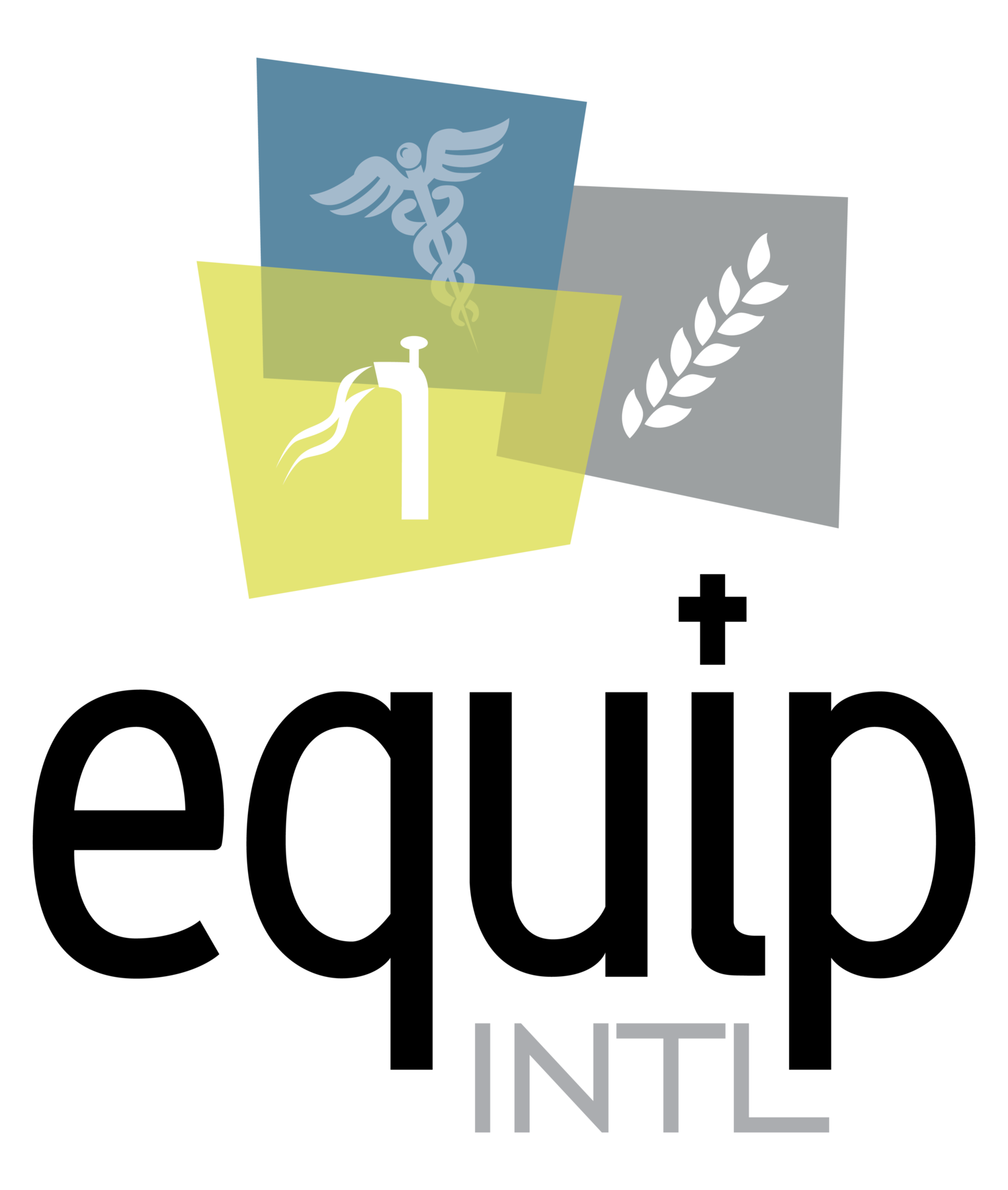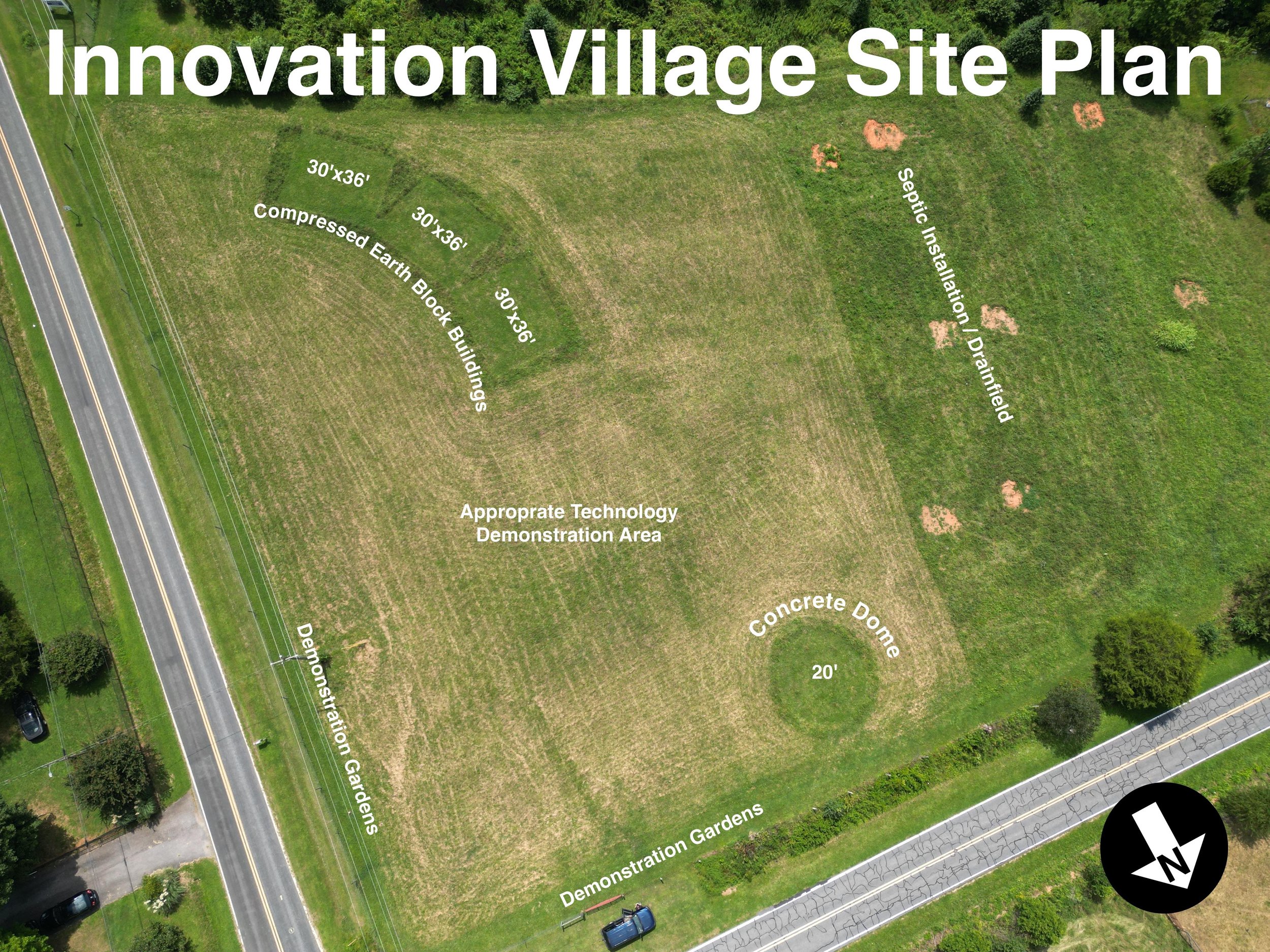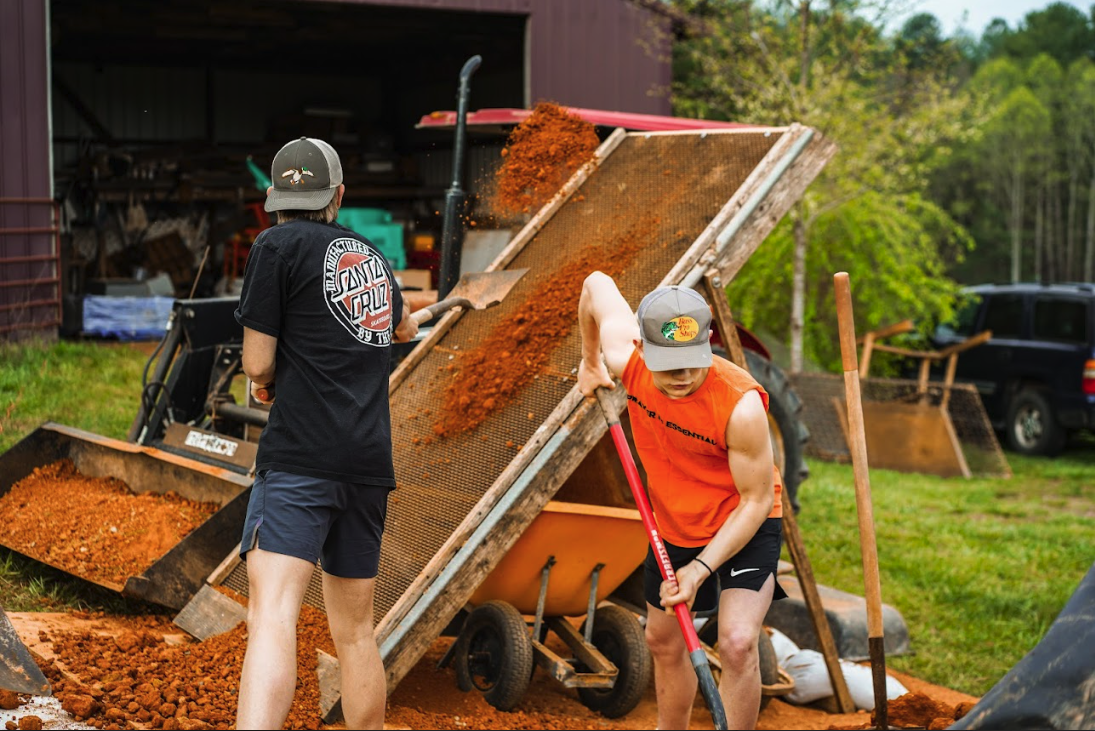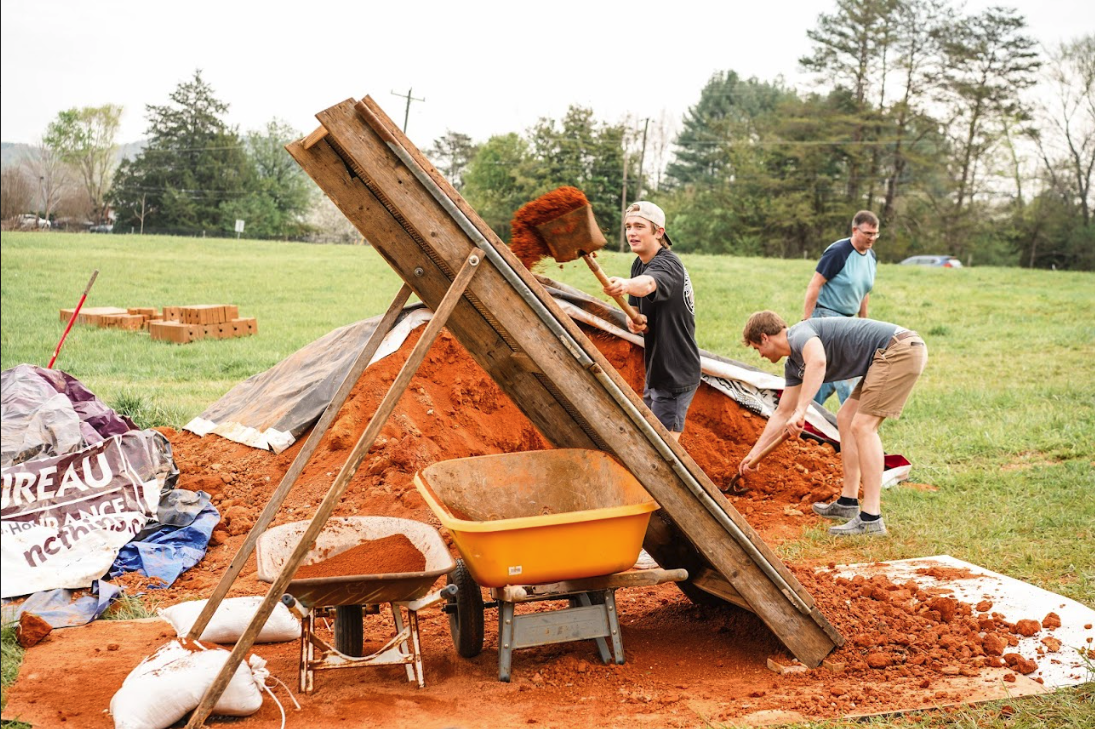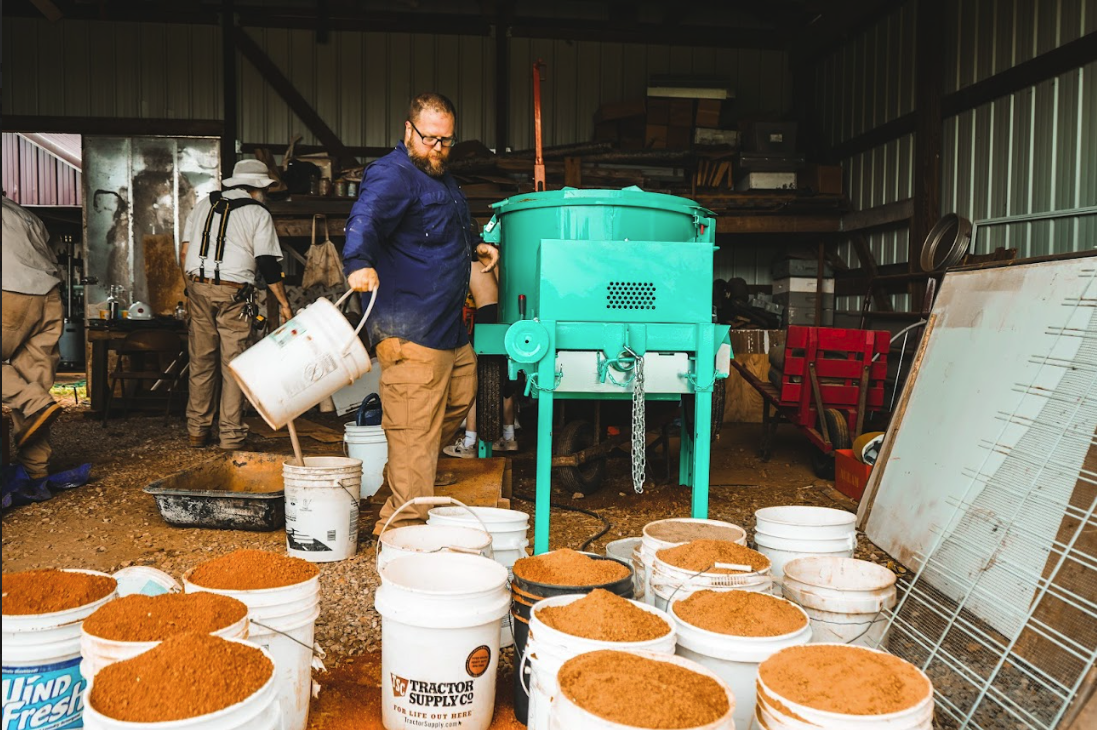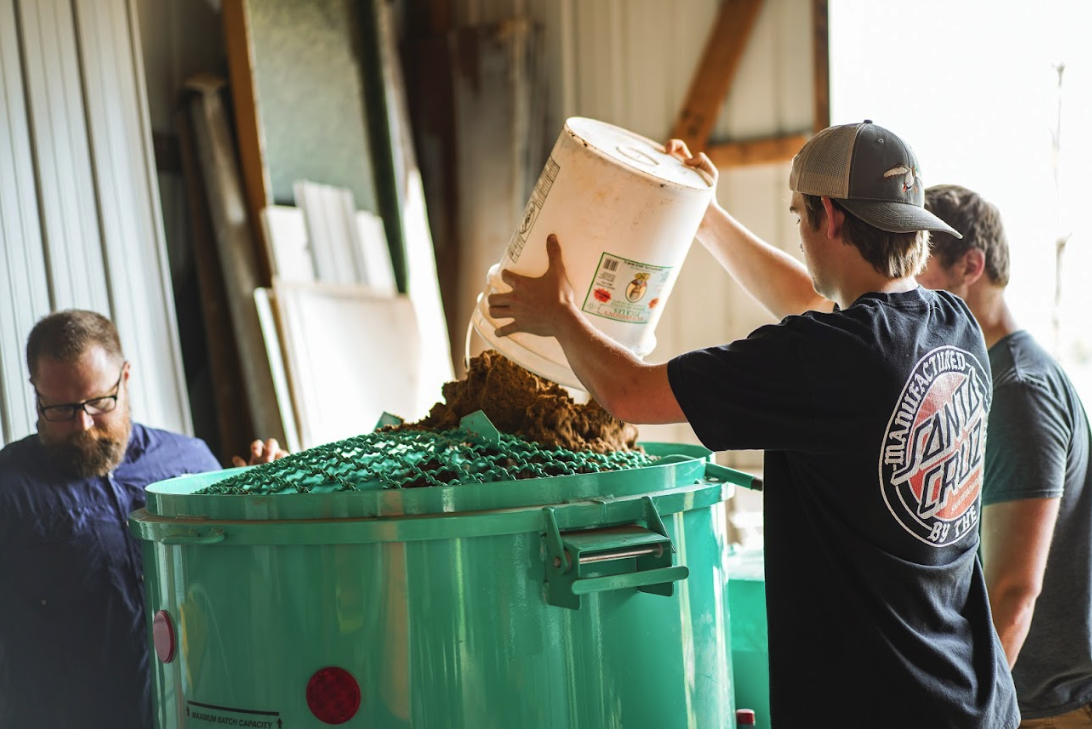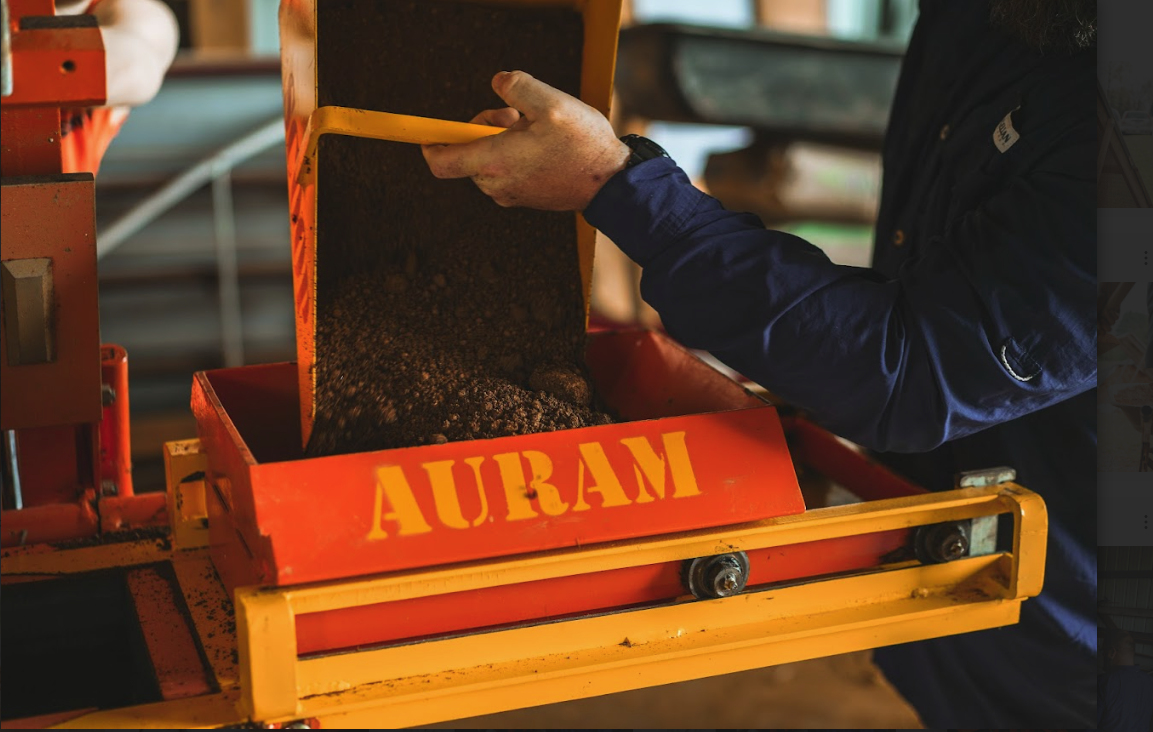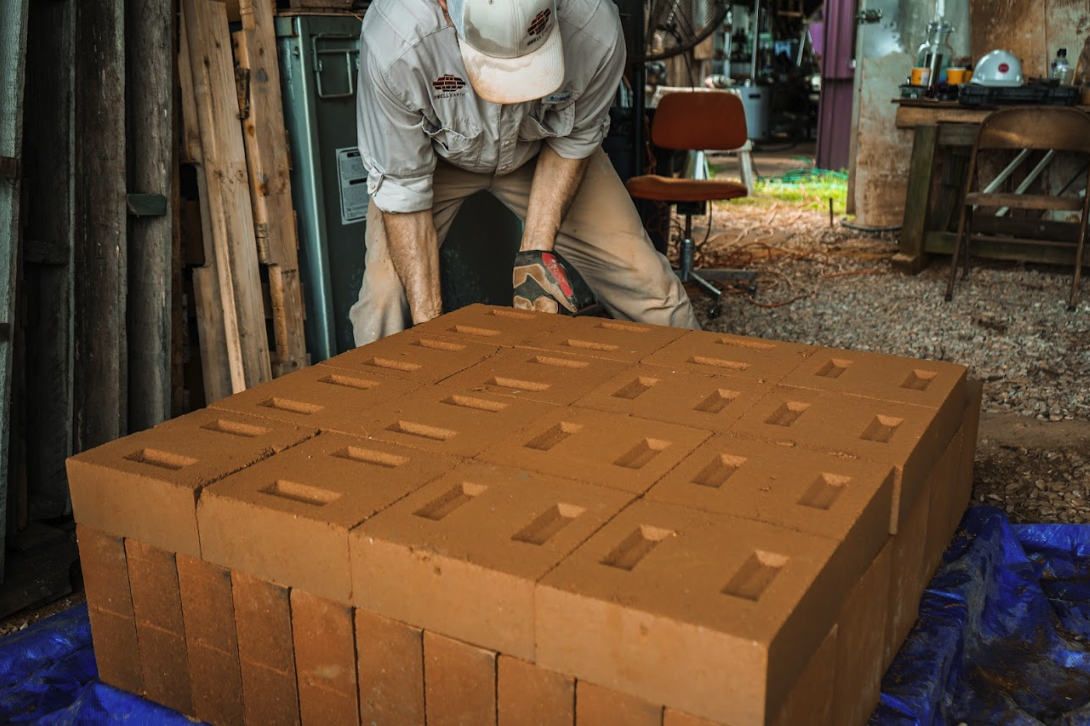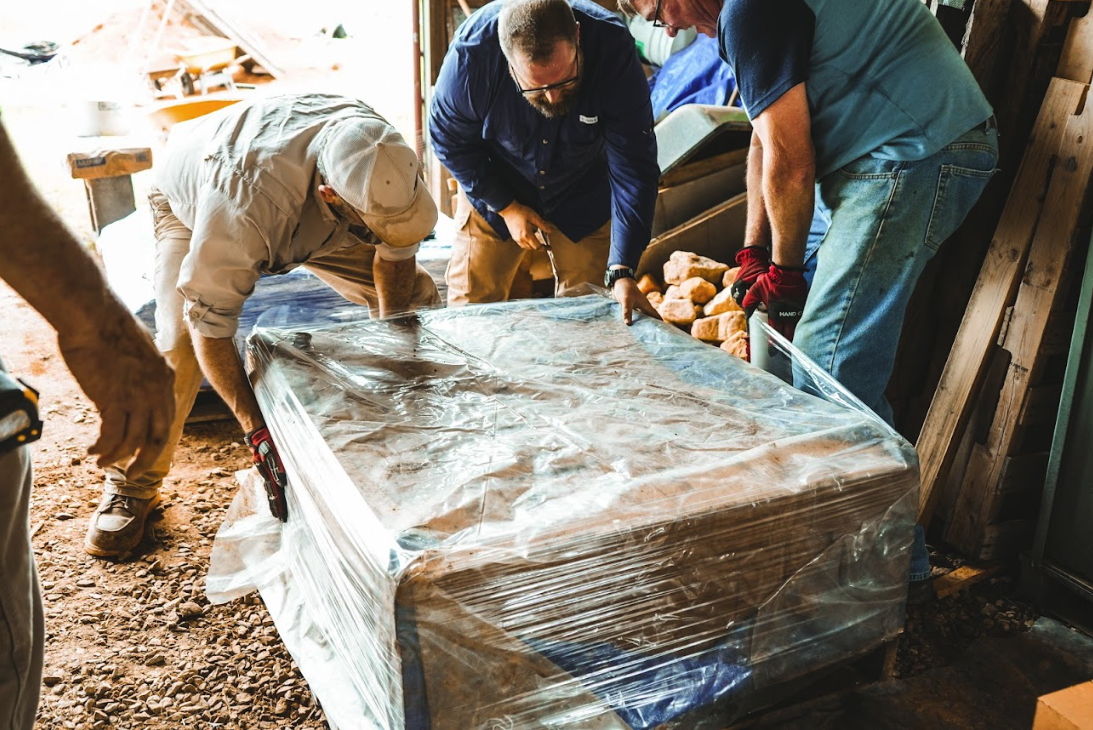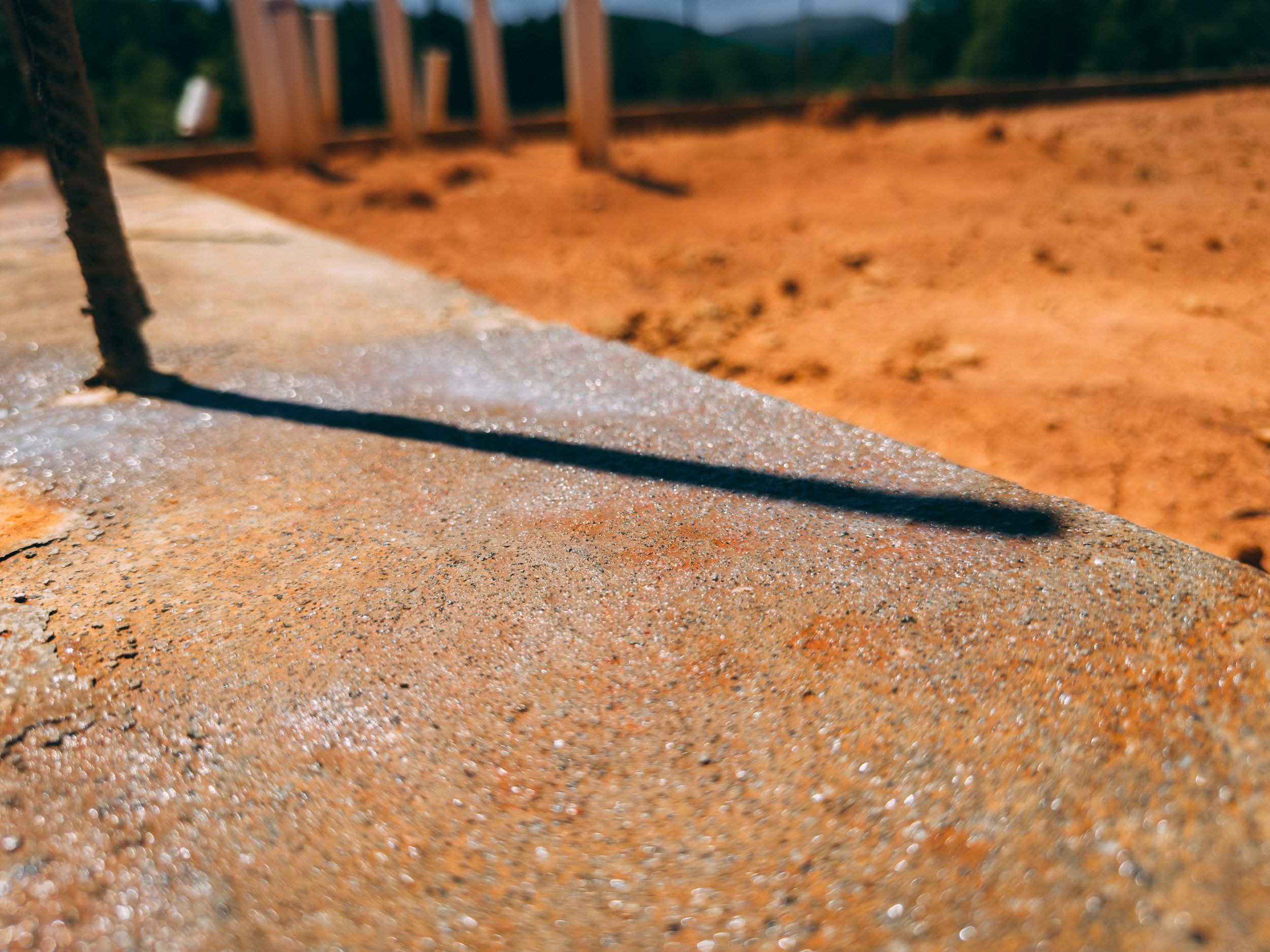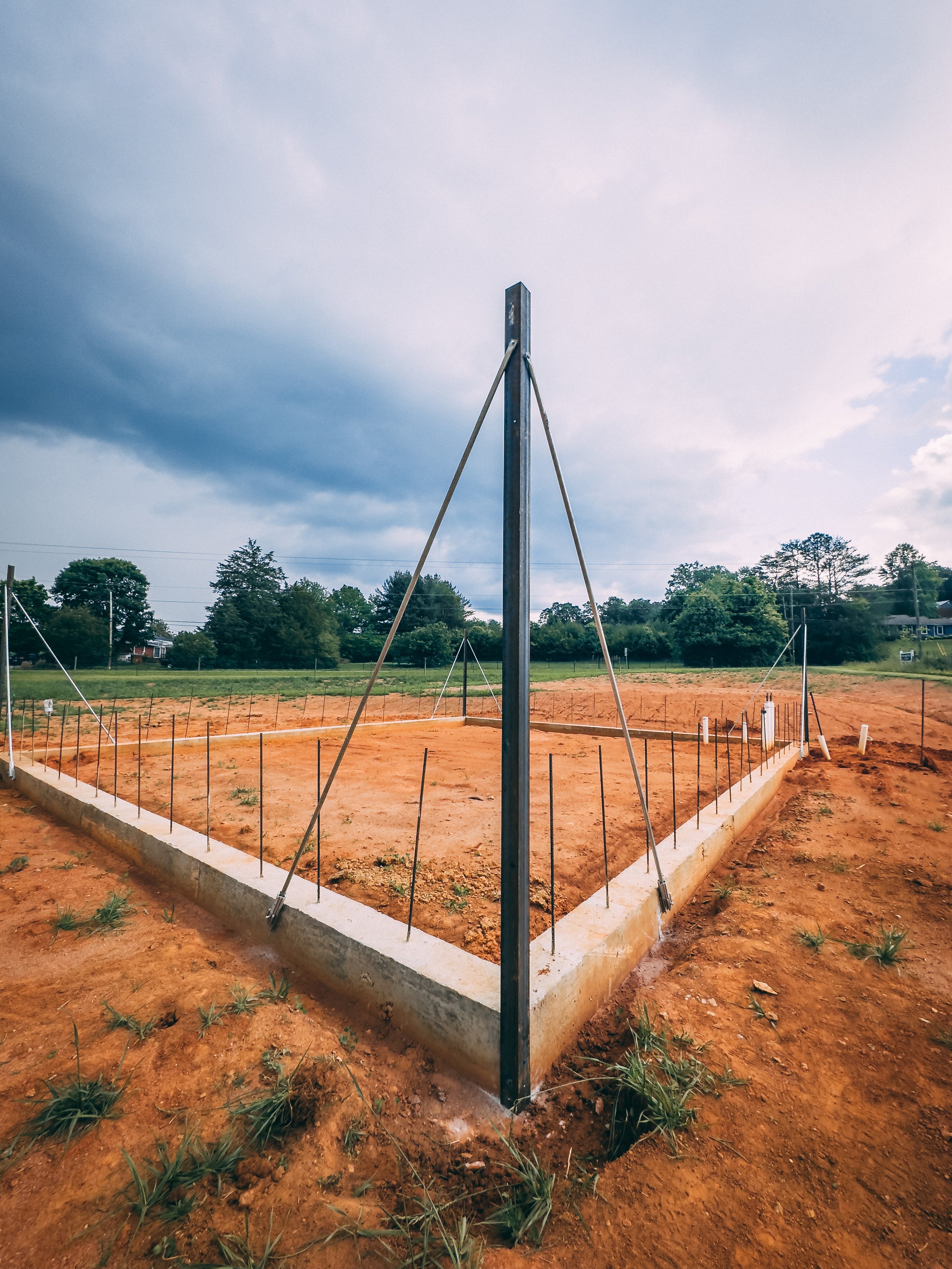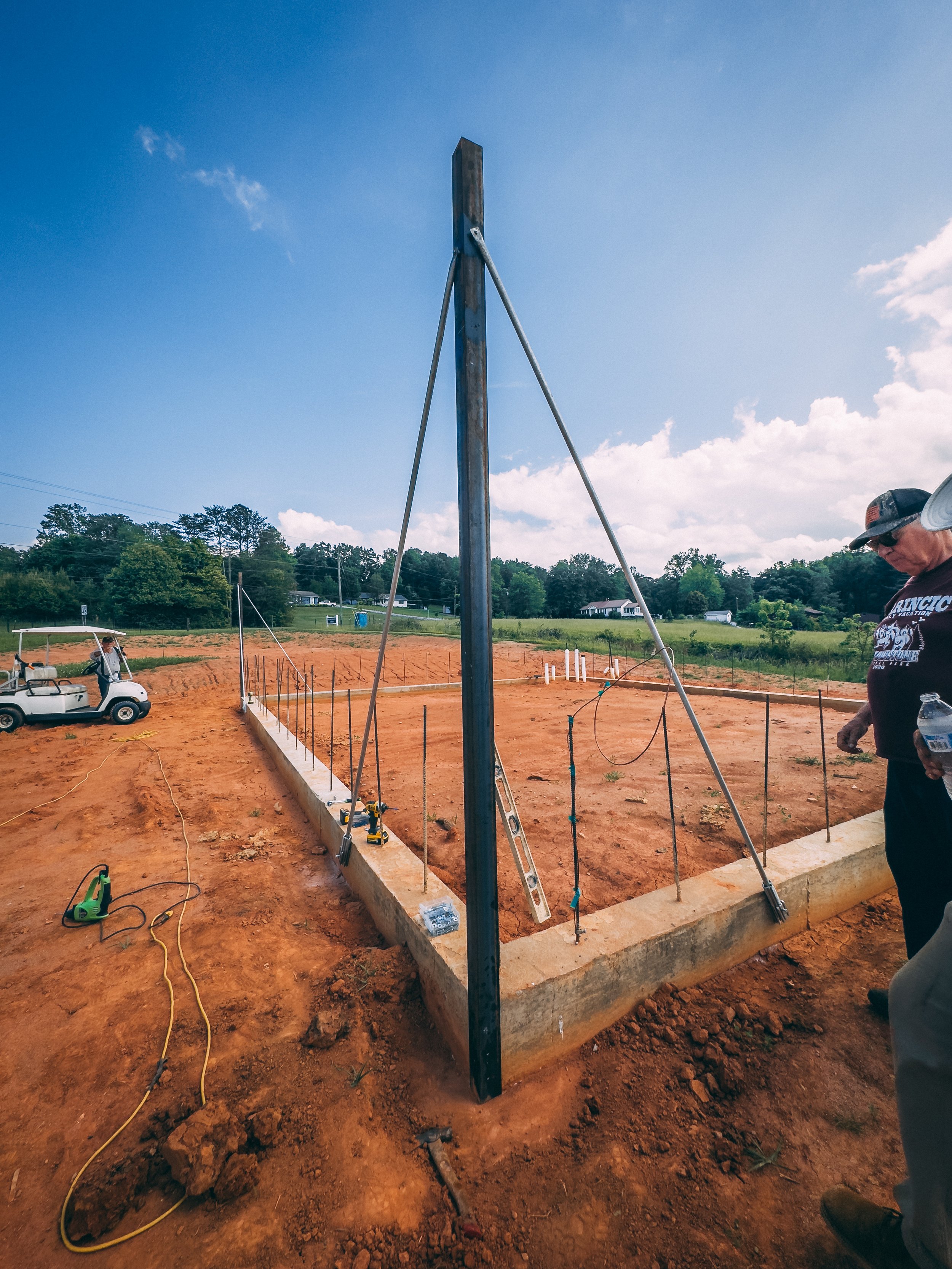Innovation Village
Innovation Village Site Plan
A renewable energy and appropriate technology showcase providing a high quality, practical, hands-on learning experience in a village of sustainable architecture and agriculture.
“Using technology and training like those found in Innovation Village allows us to show what a life changing difference the Gospel makes today and for eternity. ”
Progress Updates:
Construction began on November 1, 2022. As of January 20, 2023, the septic system has been installed, the site graded, and the foundation for the first CSEB building is set. Plumbing rough-in is scheduled for the week of January 23.
Plumbing rough-in was completed on January 23, 2023.
March / April 2023 - Block production continues, process is refined
March / April 2023 - Well drilled
May 2023 - Block production continues, masonry sealer applied, story poles up and ready.
June 2023 -Door buck in place - ready for first course of blocks. Volunteer groups continue to help with production.
August 2023 continuing to refine process and make better blocks
Summer / Fall 2023 mass producing blocks and wrapping in plastic for proper curing
Fall / Winter 2023 - walls are coming up!
Winter / Spring 2024 construction continues
March 2024 - Walls almost done
Innovation Village
A renewable energy and appropriate technology “incubator”
and a high quality, practical, hands-on learning experience
in a village of Sustainable architecture and agriculture.
The village will combine the uniqueness and practicality of sustainable architecture with the latest, yet simple applications in agriculture, renewable energy and appropriate technology to encourage the health, long-term viability, and productivity of rural communities. Basic community development principles would be taught using proven participatory learning approaches.
Renewable energy and standard power will be used side by side to demonstrate the viability of renewable sources. Energy efficiency allows people to maximize limited incomes better spent on food or education, than on heating or cooling costs for a poorly constructed or poorly-insulated house in majority-world climates. Environmental stewardship benefits us all and includes responsible forest management and soil restoration techniques. These techniques will avoid erosion and the loss of valuable topsoil thereby increasing agricultural productivity.
Equip International is clearly dedicated to training cross-cultural workers, prepared for practical, gospel-driven, humanitarian ministry in a world of great need. This includes opportunities to train local people in North Carolina to benefit communities in the areas of housing, agriculture, and appropriate technology.
To add to Equip’s already strong history of training and sending out well prepared Christian workers, “Innovation Village'' has the potential to showcase innovations and improvements in traditional rural home and refugee/IDP housing to provide practical “laboratory” experience for academic departments in surrounding universities such as engineering, agriculture, social work, intercultural studies, Christian ministries, and missions. Experienced international workers, faculty, and trainers will provide a rich learning environment.
The global village at Equip International would be unique in its integration of:
- renewable energy applications and appropriate technology demonstrations
- demonstration gardens to showcase sustainable agriculture techniques
- a showcase of habitable, high quality, housing in sustainable architecture
- demonstration of energy-independence in an off-grid environment
- environmentally sustainable building techniques
Management of the center would be facilitated by the most experienced community alumni and faculty. There would be regular visits from resident and non-resident students, professors, trainers, technical contributors, donors, and others to the site.
“Abundaculture” training as developed by Equip Missionary Jack Dody would be taught as an entire curriculum onsite. This training includes best practices in the areas of sustainable shelter, energy, food, water, and sanitation.
Demonstration agriculture would feature sustainable practices of no-till planting, raised bed gardening, keyhole gardening, etc… This would be shown in contrast to traditional methods of “slash and burn” agriculture and traditional tilling. Gardens would be showcased along the road frontage areas on the north and east boundaries of the property.
Components of “Innovation Village”:
Community Development Training and Rural Living Experience - Participatory learning using Transformational Community Development Training
Living “off the grid” – rural life skills training
Sustainable agriculture techniques
Appropriate technology utilization
Renewable Energy and Appropriate Technology.
Solar Thermal Innovations – hot water, cooking, home heating
Solar Electric (PV) Applications
Wind Energy – for electrical and mechanical energy
Energy-efficient heating and cooking – insulation and improved stoves
Water supply and safety – filtration, well protection, sanitation
Sustainable “green” Building Techniques - Four season (year-round usage) homes would feature:
Three Compressed Stabilized Earth block structures - fireproof, rot proof, bug proof, mold proof, disaster resistant structures designed to provide low cost, safe homes.
One Concrete dome - strong, comfortable housing for areas prone to weather related disasters
Equipment purchased for this project (block press, tiller) would be used in ongoing training and could provide quality materials for use in local affordable housing.
Innovation Village has great potential to be a multi-disciplinary laboratory and hands-on training center to prepare sustainably-minded kingdom workers and students for more effective service and ministry to underserved and at-risk peoples in western North Carolina and beyond.
